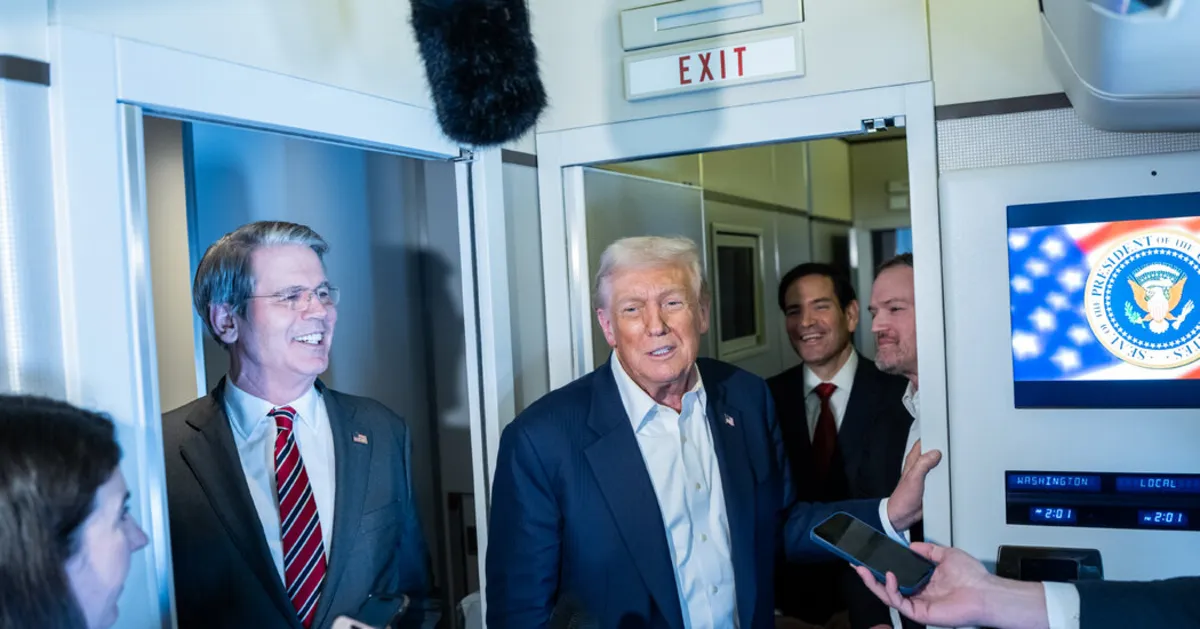
Since President Donald Trump returned to the White House, the Supreme Court's conservative majority has consistently supported his boundary-pushing policies, allowing them to remain in effect while legal battles unfold in lower courts. However, on Wednesday, the justices will consider for the first time whether to deny Mr. Trump a significant victory in a long-lasting decision. The focus of this case is the legality of his key economic policy: the use of emergency powers to impose extensive tariffs on nearly all U.S. trading partners.
The outcome of this pivotal case could have profound implications for the global economy, impacting American businesses and consumers alike. Experts describe the case as a tossup, presenting complex legal and political challenges for the justices, further complicated by Mr. Trump’s personal investment in the matter. Recently, he expressed interest in attending the court's arguments and has repeatedly emphasized the case's significance to him. In a post on Truth Social, he claimed, “This case is one of the most important in the history of the country.” He argued that without the ability to swiftly utilize tariff powers, America could become "defenseless," potentially leading to national ruin.
Legal observers indicate that the justices are likely aware that a defeat for Mr. Trump could be perceived as a personal setback. Donald B. Verrilli Jr., a former solicitor general during the Obama administration, commented, “You can’t help but think that [the perception of a personal blow] is going to be hovering over the decision-making process in this case.” The Supreme Court's six conservative justices have so far been amenable to Mr. Trump’s claims regarding presidential authority, permitting the administration to withhold congressional funds and implement aggressive immigration policies, albeit temporarily.
This tariffs case marks the first instance where the justices will evaluate the underlying legal merits of a significant administration priority during Mr. Trump’s second term. Additional cases are on the horizon, including a review of Mr. Trump’s attempts to exert control over independent agencies next month, and a case concerning his efforts to remove a Federal Reserve Board member in January. Furthermore, the administration has requested the court's consideration of the legality surrounding Mr. Trump’s executive order that aimed to end birthright citizenship.
Jack Goldsmith, a Harvard Law School professor and former Justice Department lawyer under George W. Bush, noted that the contentious legal issues surrounding the tariffs case may prompt some justices to consider broader implications across the spectrum of presidential authority cases. He remarked, “At the end of this term, we’ll see wins and losses for Trump on presidential power. This is the case I think is the closest, so I don’t know which way it will cut.”
The Supreme Court has moved quickly, establishing a tight schedule for submitting written briefs and presenting oral arguments, indicating they may rule swiftly rather than adhere to their typical timeline of waiting until the end of the term for significant decisions.
The controversy surrounding the tariffs stems from the Constitution, which grants Congress the power to impose taxes. Upon taking office, Mr. Trump argued that a 1977 law provided him unilateral power to impose tariffs during emergencies. He invoked this statute to announce tariffs on imports from various nations, citing a need to combat the flow of fentanyl and to address trade deficits.
The tariffs have caused upheaval among small businesses, leading to lawsuits from state officials and companies like V.O.S. Selections and Learning Resources, whose cases are currently before the court. These businesses argue that Mr. Trump’s actions were unlawful, negatively impacting their profits and forcing layoffs and price increases.
Proponents of the tariffs claim that the 1977 statute empowers the president to regulate imports during emergencies, but they face opposition from legal experts who argue that the law does not explicitly mention tariffs or taxes. Michael W. McConnell, a former federal appeals court judge, pointed out that while past presidents have invoked emergency powers for sanctions, Mr. Trump is the first in half a century to use them for imposing tariffs.
The legal community is split on the issue, with some influential figures arguing that the use of emergency powers should be strictly limited to genuine emergencies. Tara Leigh Grove, a law professor, stated that the justices may find it challenging to classify longstanding trade deficits as emergencies, even though the statute appears to give the president considerable discretion.
As the justices deliberate, they will confront two significant doctrines favored by the conservative legal movement: the major questions doctrine and the nondelegation doctrine. The major questions doctrine mandates that Congress must provide clear authorization for executive actions that could reshape the economy. Current legal interpretations have led to the invalidation of several key initiatives from President Joe Biden, suggesting that similar scrutiny could apply to Mr. Trump’s tariff powers.
The challenges to Mr. Trump’s tariffs reached the Supreme Court after various lower courts ruled against the administration while keeping the import taxes in place during ongoing litigation. A recent ruling highlighted that the emergency statute did not authorize tariffs of the scale announced by the president. The court stated, “Whenever Congress intends to delegate to the president the authority to impose tariffs, it does so explicitly.”
As the Supreme Court prepares to address these critical issues surrounding presidential power and tariffs, the potential ramifications could echo throughout the economy and shape the future landscape of executive authority in the United States.